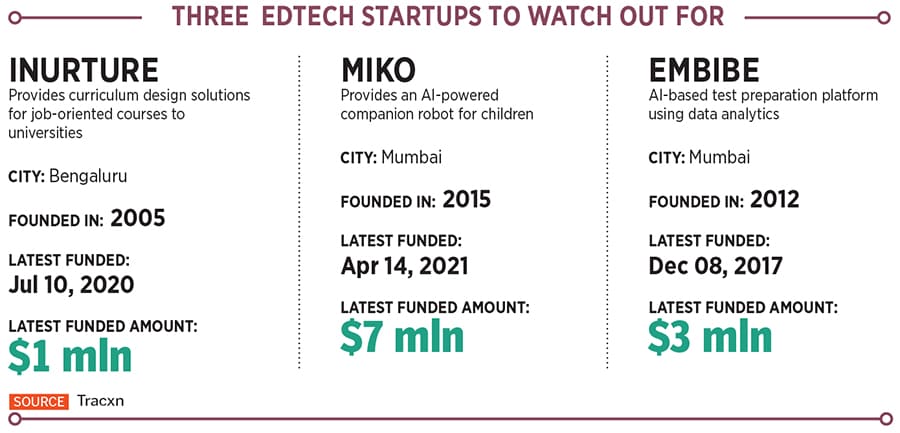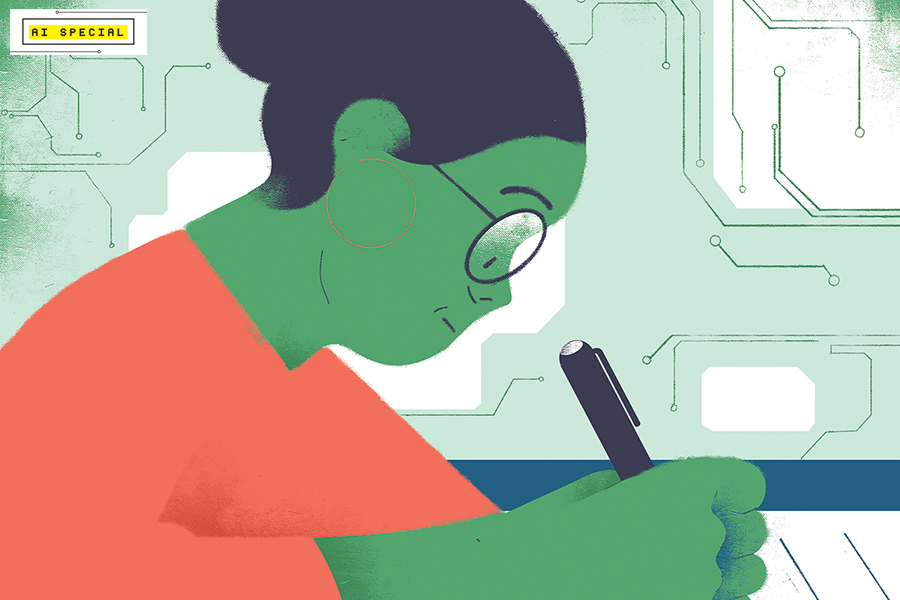Why your online class needs help from robots
Edtech startups are deepening their tech capabilities to personalise classes, monitor individual students and find ways to keep children more engaged


Illustration: Sameer Pawar
The push towards digitalisation of education has been another massive trend that accelerated due to the Covid pandemic, with children going to school online world over. Startups in the field have seen big jumps in the demand for their services. In India alone, edtech startups raised $2.22 billion in 2020—nearly four times as much as in 2019—according to Indian Private Equity and Venture Capital Association (IVCA) and PGA Labs.
They are using the money to deepen their tech capabilities to not only extend their reach, but also to start personalising teaching and to make online classes more engaging, using AI-based tools.
“We are investing heavily in our tech platform on personalisation. We are looking at how, in a class of 50 or 100, a teacher can use AI-based tools to engage the whole class," says Amit Mahensaria, co-founder of Impartus, which offers a tech platform for video-based learning. The startup was recently acquired by upGrad, entrepreneur Ronnie Screwvala’s edtech company, and rebranded as upGrad Campus.
AI can help better moderate online class discussions. If some of the students aren’t up to the mark, for example, AI can help spot them and “auto-guide" them, Mahensaria says.

In a live online class with a batch of, say, 50 students, AI-based tools can help monitor individual students for their levels of engagement. For example, what has a particular student done in the past five or 10 minutes, how many questions have they asked or the number of times they have changed screens or interacted with the teacher.
AI tools can track all this and then help the teacher nudge a student in the online equivalent of a piece of chalk being thrown at an inattentive student, Mahensaria says. Questions can pop up on individual students’ screens to keep them engaged.
Avishkaar, is a Delhi startup that offers robotics kits and coding courses to school children. The company runs some 1,500 labs in schools, where students can learn robotics and coding. One of the students who used Avishkaar’s products built an extension to the Chrome browser to help people retain what they learn from watching YouTube videos better, co-founder and COO Pooja Goyal says.
The AI-based tool would offer a pop-up quiz each time a user watches a video. “Today’s children are digital natives and they see technology as a natural extension of themselves," Goyal says.
“They are consuming massive amounts of data to learn on their own. If they get the necessary tools to see what’s under the hood and teach themselves to solve the problems around them, it’s a powerful step forward," she says.
First Published: Aug 04, 2021, 10:30
Subscribe Now Using AI-based tools can help in personalising teaching and to make online classes more engaging
Using AI-based tools can help in personalising teaching and to make online classes more engaging